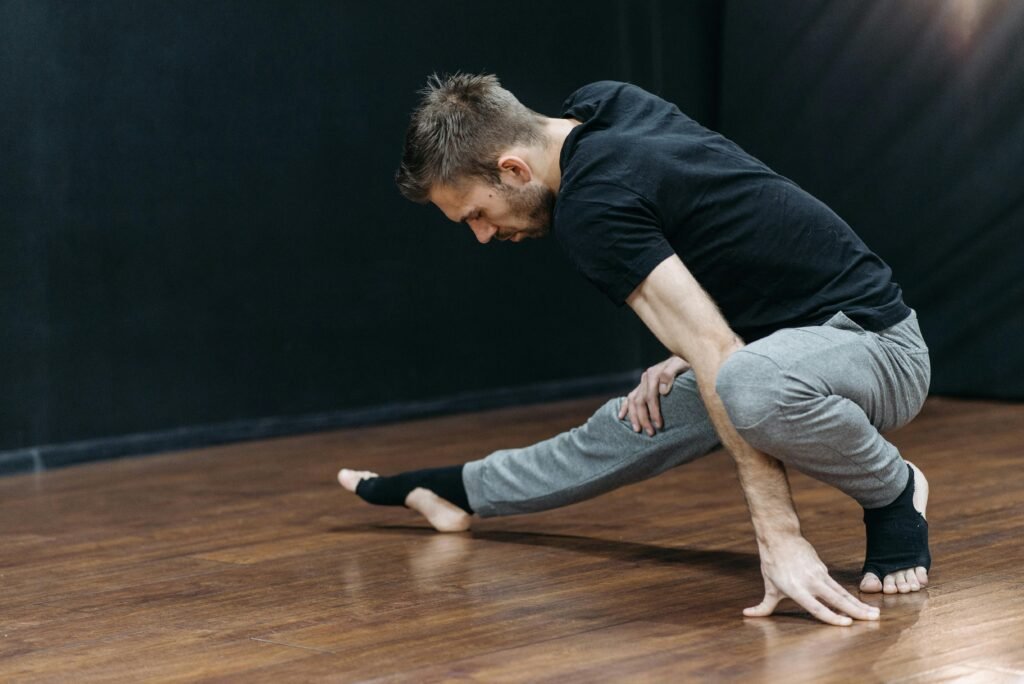A complete step-by-step muscle-up tutorial: learn progressions, drills, and tips to finally achieve your first muscle-up.
Why the Muscle-Up is the Ultimate Calisthenics Goal
The muscle-up is one of the most iconic exercises in calisthenics. It combines a pull-up with a dip, requiring explosive pulling strength, pushing power, grip strength, and advanced technique. Mastering this move is not only a huge milestone but also a sign of well-rounded upper-body strength.
Unlike regular pull-ups or dips, a muscle-up trains multiple movement patterns at once: pulling, pushing, and transitioning. This makes it both functional and athletic. Whether your goal is street workout, CrossFit, or pure strength, achieving your first rep will elevate your training game.
Muscle-Up Requirements
Before jumping into the tutorial, you should be able to perform:
- 10-12 strict pull-ups
- 15-20 dips on parallel bars
- 3-5 chest-to-bar pull-ups (to practice the explosive pull)
If you don’t meet these strength standards yet, focus on building a strong foundation with pull-ups, dips, and push-ups before attempting the muscle-up.
Step-by-Step Muscle-Up Progression
1. Explosive Pull-Ups
Unlike normal pull-ups, you need to pull your chest above the bar. Focus on speed and power. Aim to get the bar to at least your upper chest.
2. Chest-to-Bar Pull-Ups
This drill bridges the gap between pull-ups and muscle-ups. Pull as high as possible, aiming for the lower chest or sternum to touch the bar.
3. Transition Practice
The hardest part of a muscle-up is the transition — moving from the pull to the dip. Practice this by doing slow negatives: start in a dip above the bar, then slowly lower yourself back into a hanging position.
4. Straight Bar Dips
Once you clear the bar, you must press out of a dip. Practice high-rep straight bar dips to strengthen the final phase of the movement.
5. Band-Assisted Muscle-Ups
Using resistance bands on a pull-up bar helps you build the motion pattern with less bodyweight resistance. This is one of the fastest ways to learn the mechanics.

Tips to Get Your First Muscle-Up
- Use a false grip: Wrapping your wrist over the bar shortens the transition.
- Lean forward at the top: This helps your chest roll over the bar instead of stalling.
- Practice explosive pulling: Think about driving your elbows behind you as fast as possible.
- Don’t kip too early: Strict muscle-ups build more strength and better form before adding momentum.
Sample Muscle-Up Training Routine
Day 1: Strength Foundation
- Pull-ups: 4 sets x max reps
- Dips: 4 sets x 10-15 reps
- Push-ups: 3 sets x 20 reps
Day 2: Skill & Explosiveness
- Chest-to-bar pull-ups: 5 sets x 5 reps
- Explosive pull-ups: 4 sets x 6 reps
- Band-assisted muscle-ups: 5-6 attempts
Day 3: Transition & Endurance
- Negative muscle-ups: 4 sets x 3-5 reps
- Straight bar dips: 4 sets x 12 reps
- Core training: Hanging leg raises 3 x 12
Common Mistakes That Prevent a Muscle-Up
- Pulling too slow (muscle-ups require explosiveness, not grinding)
- Not training dips (many athletes can pull over the bar but fail to press out)
- Using only kipping momentum without building strength
- Skipping the transition practice
Muscle-Up Equipment & Resources
While you only need a sturdy pull-up bar, these tools can speed up your progress:
- Resistance bands: Perfect for assisted muscle-up drills
- Gymnastic rings: More forgiving on wrists and allow for natural movement
- Chalk: Prevents slipping and helps grip strength
Our recommended pull-up bar for home use (US Readers)
Our recommended pull-up bar for home use (GB Readers)
Our recommended pull-up bar for home use (EU Readers)
Final Thoughts
The muscle-up is not just about strength—it’s about explosive power, technique, and consistency. With the right progressions and weekly practice, most athletes can achieve their first muscle-up within 8–12 weeks. Stick to the progressions, avoid rushing, and celebrate every small milestone along the way.


